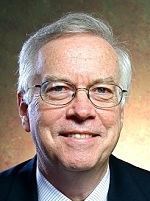 There is a surprising level of interest in reconciliation among couples with children involved in the divorce process, something no research had examined before, according to a new study done by family social science researcher Bill Doherty in collaboration with Hennepin County District Court Judge Bruce Peterson.
There is a surprising level of interest in reconciliation among couples with children involved in the divorce process, something no research had examined before, according to a new study done by family social science researcher Bill Doherty in collaboration with Hennepin County District Court Judge Bruce Peterson.
The study, “Interest in Marital Reconciliation Among Divorcing Parents,” was published recently in Family Court Review, the leading academic journal for professionals who work in family courts. This is the first time data has been gathered on divorcing parents’ interest in reconciliation. In the study, nearly 2,500 divorcing parents were surveyed about reconciliation after taking a required parenting class.
About one of four individual parents indicated some belief that their marriage could still be saved with hard work, and about one in nine couples believed both partners did, says Doherty.
When asked if they would be seriously interested in obtaining reconciliation services, about three in 10 individuals expressed openness to receiving help. In one in 10 couples both partners were interested in reconciliation services, and in one in three couples one partner was interested and the other not. Overall, in about 45 percent of couples, one or both of the partners reported holding hopes for the marriage and a possible interest in reconciliation. Males were more interested than females in reconciliation.
This new research indicates that a surprising number of divorcing parents are open to reconciliation, information that Doherty suggests should influence the practice of divorce professionals. Many of the participants in this study were toward the end of the divorce process; further analysis has shown that couples earlier in the process are even more open to reconciliation.
Doherty says that “in the 1960s, many family court professionals viewed themselves as having a responsibility to help couples reconcile if that was possible, or have a constructive divorce if reconciliation was not possible. This reconciliation-first approach did not survive the cultural changes of the 1970s. Instead divorce practitioners generally assume the inevitability of divorce once people begin the legal process.”
“While many who enter the divorce process may have made a final decision to end their marriages, those who are uncertain or are open to reconciliation deserve more attention from professionals than they receive currently,” says Doherty.
Peterson, formerly a presiding judge in family court, felt a need to add reconciliation and discernment processes to the services offered to divorcing couples with children. His personal experience prompted this research.
“Over the years I had seen a number of divorcing couples who interacted comfortably and solved problems well together, making me wonder if there might be better options for them than putting their children through the trauma of a divorce. I asked Dr. Doherty for advice and the research he supervised now provides a solid basis for these kinds of services,” Peterson says.
An immediate outgrowth of this research has been the formation of the Family Law Marital Reconciliation Option Project with a group of collaborative family lawyers in the Twin Cities area. This group has developed practices to more systematically explore whether new clients have made a final decision to divorce or are uncertain about whether it’s the best course of action.
When their clients are interested in slowing down the process and looking at their options, the lawyers and collaborating professionals refer them to the Minnesota Couples on the Brink Project at the University, headed by Doherty and colleague Steve Harris, for a new form of assistance called “Discernment Counseling.” The goal of this counseling is to help couples have clarity and confidence in their decision whether to divorce or to try to reconcile their marriage. See the project’s website, www.mncouplesonthebrink.org, for more information.
See more in this USA Today article. Also see Doherty’s opinion piece in The Washington Post.
See this KARE 11 story:



